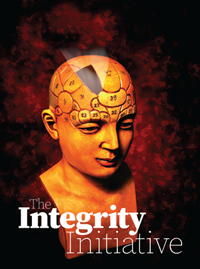What do ethics have to do with compliance? Businesses have to have a clear vision of ethical standards and have to understand how compliance filters down throughout the company and how it impacts business performance.
Culture and ethics
The ethical standards that the company wants to operate by must filter down efficiently within the organization. The culture should be founded on openness, humanism, collaboration, and should allow employees to speak up and raise problems which need solving. Compliance must be part of the business and be fully embedded in the overall business processes.
Compliance and commerce
Compliance officers have to understand the business that they’re in and the challenges faced by their colleagues. This way they can work with the team to design effective programs. This requires engaging with procurement or treasury teams to understand their decision-making process. They all bring a different perspective to the table, which allows compliance to get under the skin of the business and design solutions which are effective.
Perceptions of Compliance
Compliance has historically been about rules, about policy. But it is more than that today. It’s about behaviors, it’s about governance; most people want to do the right thing and the role of compliance is to show them what the right thing is. This could include considering cultural norms in different parts of the world or thinking two steps ahead of the situation and its implications.
Fundamentally, people want to buy from people, and they want to buy from people with a similar value system. This takes compliance beyond rules and regulations, incorporating ethics into business processes rather than imposing a rulebook, which may or may not be read.
Transformational change
The compliance world is unrecognizable from where it was even 10 to 15 years ago. The mood around the world and actions by different governments have transformed the corporate approach to ethics and the focus on sustainability, simplicity and effectiveness.
Navigating change
The new tranche of Russian sanctions issued by the US Government are a prime example of the kind of challenges compliance professionals are faced with. This has been a learning curve for everybody from procurement to supply chain teams. Similarly, the pandemic has necessitated having compliance at the front and center of the business. We won’t know the answer to every question, but we need to know where to get the answer and get the answer quickly.
Technology
A lot of thought goes into technology and the tools compliance might need to operate on excel or on paper. There are systems in place to monitor learning, due diligence, digital document signing, integrations and interactions between systems, and a whole host of other effective platforms.
The Future of Compliance
The role of compliance is to drive corporate activity forward in an ethical way. The days when it was a competitive disadvantage to abide by compliance are over. It will now be a competitive advantage! Compliance will no longer be about reading external rules and procedures but will be about learnt behaviors. Children and adults alike learn most through doing and that’s what the future of compliance will be guided by.
I hope you enjoyed this “excursion” on compliance, ethics, and integrity in doing successful business.
Feedback would be appreciated; contact me at [email protected]



